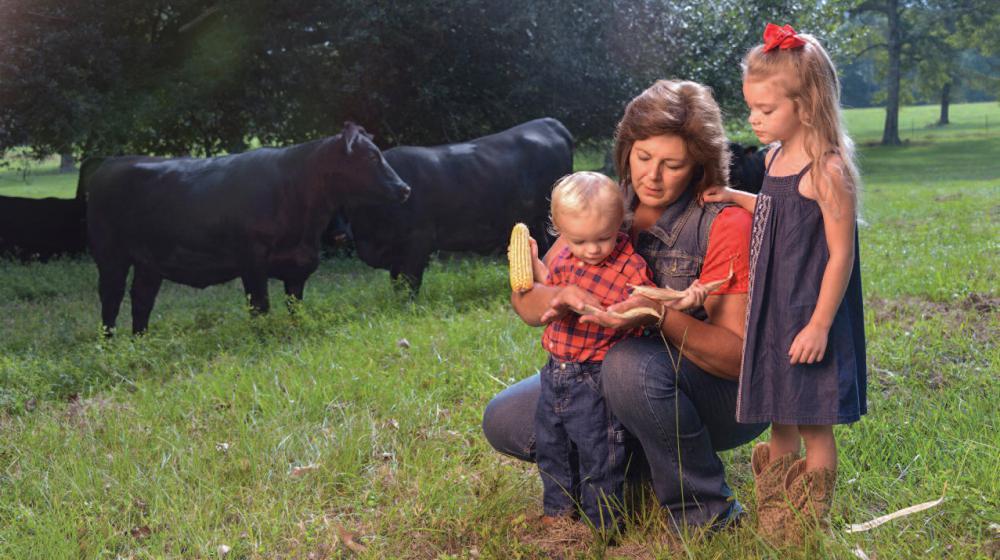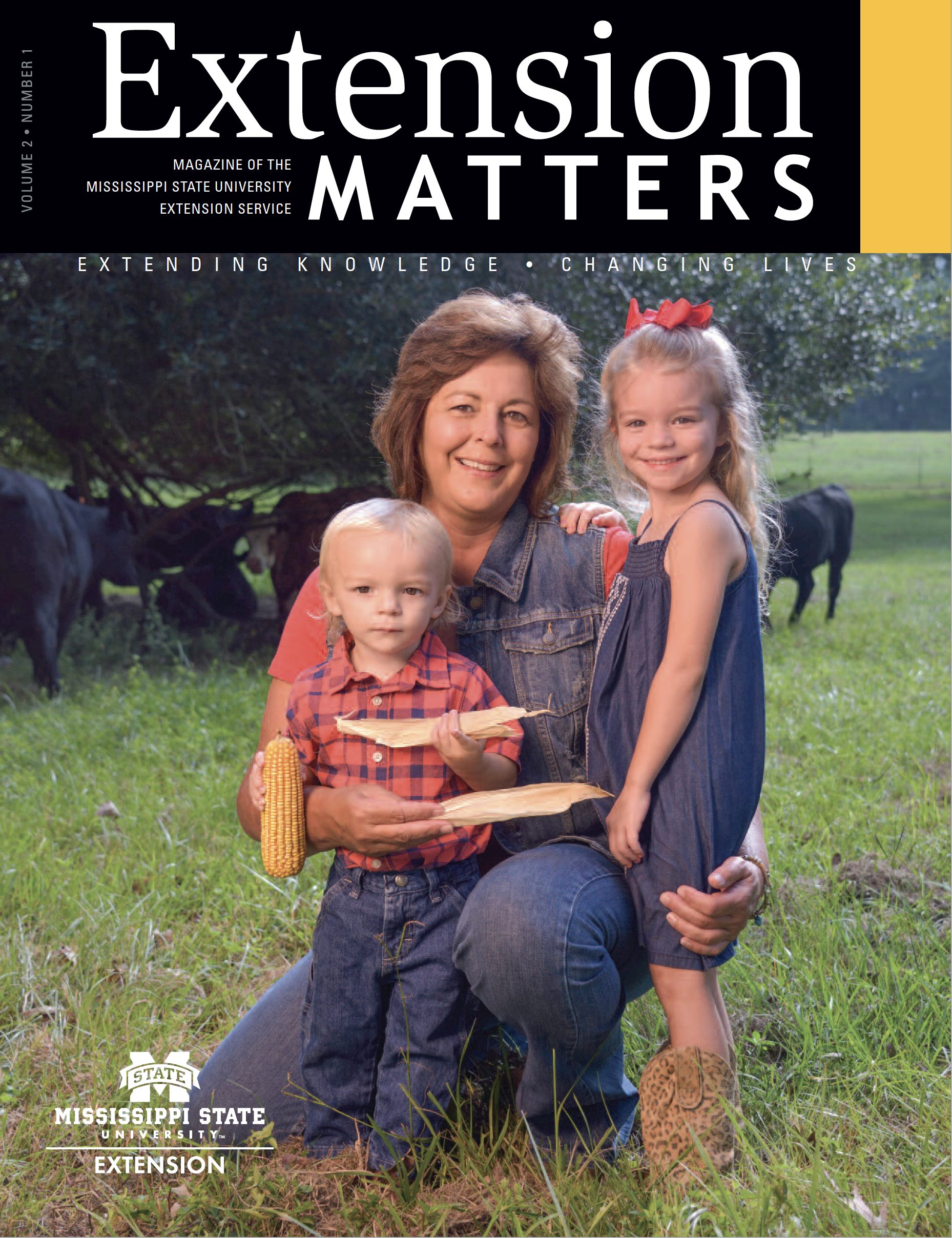Back to Her Roots

Greta Thornton, 4-H volunteer, with grandchildren
Although Greta Thornton’s children are adults, she could not give up the volunteer work that she says keeps her connected to agriculture.
“I like to be involved with what is going on in agriculture, and working with Extension keeps me up to date,” she says of the Mississippi State University Extension Service. “My husband and I have a farm with cattle and chickens and a few other animals. I enjoy working in agriculture and staying involved with the youth in our county.”
The farm is an enjoyable pastime for the Thorntons, who live in Vancleave and run an air conditioning business as their main livelihood.
“Agriculture is not related to our business and is something I’ve been involved in since I was a child,” says Thornton, who grew up in Vancleave with six brothers and sisters. “My father was a row cropper. He grew corn and soybeans and raised cattle when we were kids. I always helped around the farm, just like my brothers. We all pitched in.
“He’s 81, and he still raises cattle and bales hay. My work with Extension helps us make decisions and gives us something to talk about,” Thornton says.
Thornton was not a 4-H’er herself and had not been involved with the Extension Service until she registered her children, Karoline and Jerrod, for the 4-H livestock program in the early 1990s, when they were young teenagers.
“We were looking for something that we could do as a family, and we thought that would be a good project for them,” she says. “My husband had been involved in archery and racing, and we always went with him. But we wanted something the kids could be more involved in and that we could still all do together.”
They both showed cattle and chickens. Karoline became involved in the Junior Cattlemen’s Association and served as state president during her last year in 4-H, which got Thornton involved in the Mississippi Cattlemen’s Association in Jackson and George counties. She now serves as president of the group, which works closely with the Extension Service.
Thornton is involved with many Extension events, including Dixie National Livestock Show and Rodeo and county and state fairs, and she has helped establish some popular local events and programs, such as Family Farm Day and the 4-H poultry program.
“Greta is a major contributor to our county Extension programs,” says Angie Rogers, Extension agriculture agent in Jackson County. “She helped me get our county poultry program off the ground. Three years ago we started the Family Farm Day that helps introduce children to life on the farm. She also helps me organize and run our FARMtastic event every year.
“Greta is an adult programs volunteer, but she often helps me with youth events. We Extension agents depend on our volunteers. We couldn’t do our jobs without them. I know I can count on Greta to help me with anything. All I have to do is ask her.”
Thornton says working with children is one of the most enjoyable aspects of volunteering with Extension.
“I love to help the kids. Jackson County is a heavily industrial county. The shipyard, Chevron, and Mississippi Power are some of our largest employers,” Thornton explains. “Many children may not have the chance to be involved with agriculture without Extension. I want them to have that opportunity and be encouraged to keep participating.”
Many times, she says, her main duty at a livestock show or county and state fairs is to help make sure things run smoothly by standing at the back of the barn where 4-H’ers are preparing to enter the show ring with their animals.
“A lot of kids are scared or nervous when they walk in the ring,” Thornton says. “I want to be there to support them and answer their questions. I love to see the kids develop life skills and gain an appreciation for and an understanding of agriculture at the same time.”
She wants other children to have positive experiences like her son and daughter.
“I think 4-H is one of the best things children can be involved in,” she says. “If kids are busy in the barn with cattle, they are learning. If they are in the ring showing an animal, they are learning. They usually don’t realize they are learning, but they are. They learn the value of hard work.
“Our kids would fuss when they had to get up before school and feed their animals or if they missed a football game or party because we had to go to a show. But once we were there, they enjoyed themselves, and we all had a good time. They learned that their hard work and sacrifice paid off. When they won at a show, it wasn’t hard work anymore. It was fun work. They also learned how to lose. Even though they lost, they still learned a lot. And they understood that.”


